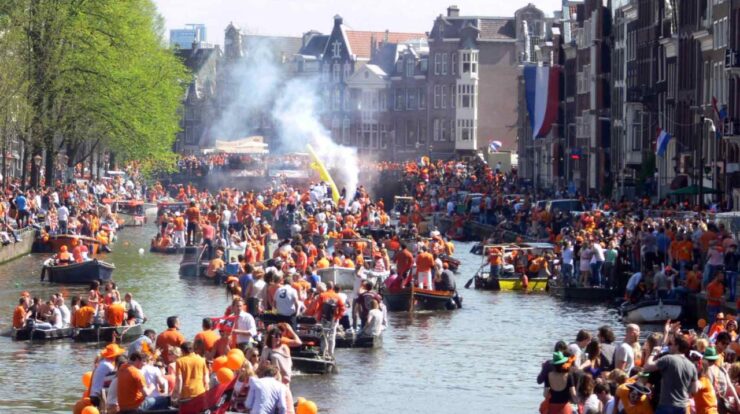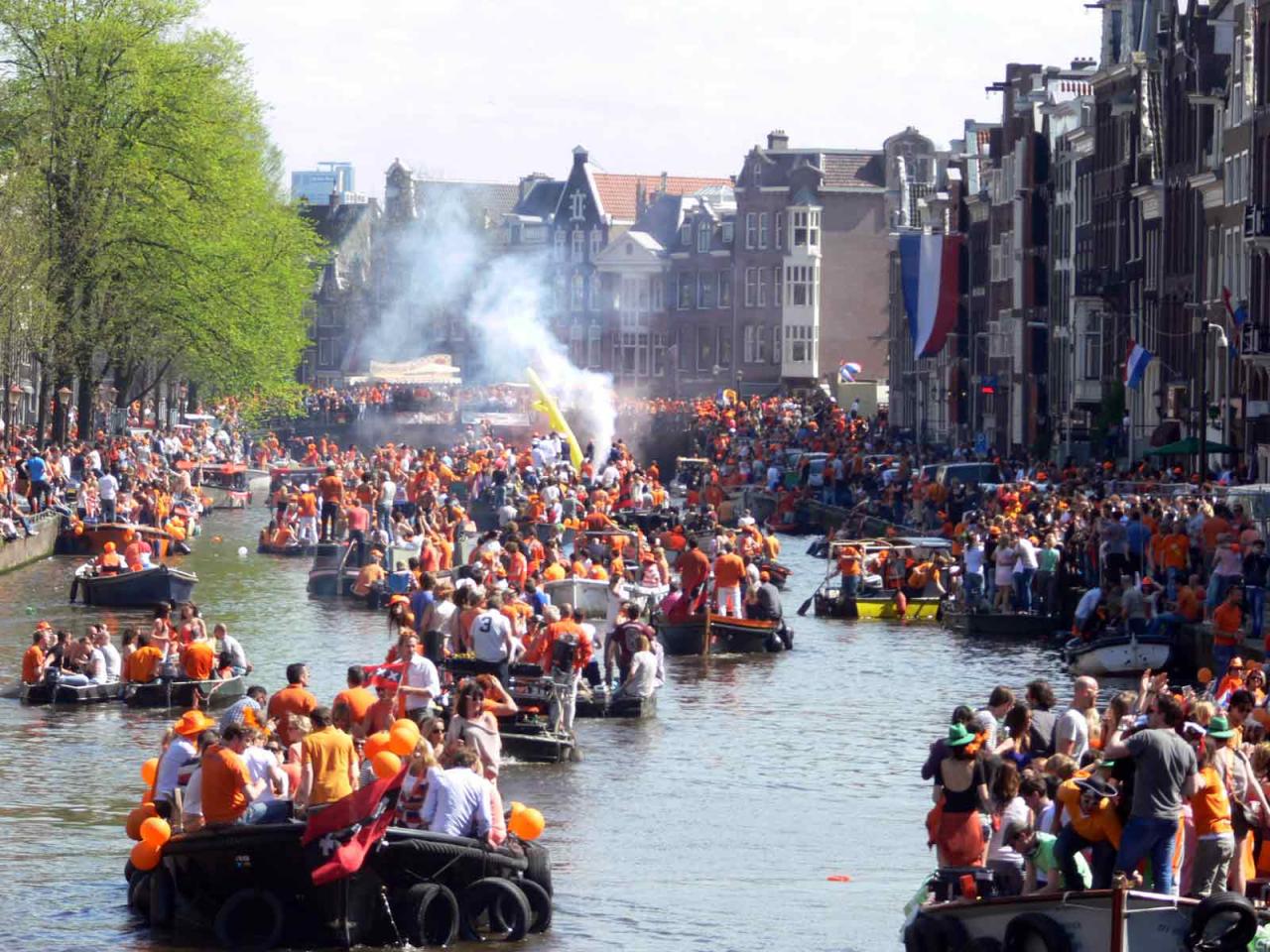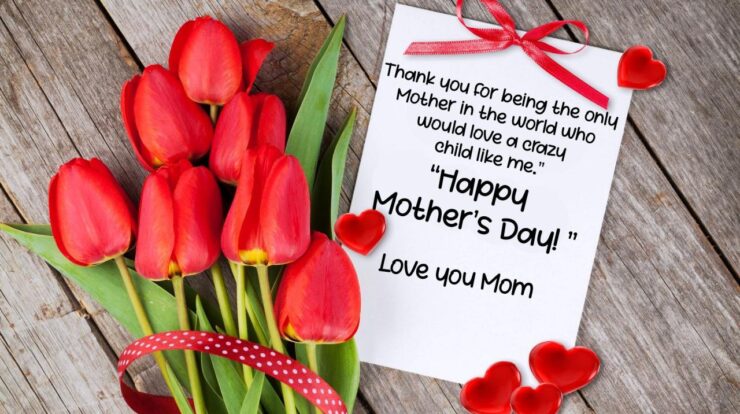
Koningsdag, the Netherlands’ vibrant national holiday, is a day of exuberant festivities, rich traditions, and a profound expression of Dutch culture and identity. Originating as a celebration of the birth of Queen Wilhelmina in 1880, Koningsdag has evolved into a beloved tradition that brings together communities across the country.
The celebration is marked by a colorful array of activities, from lively flea markets and music performances to the traditional “oranjegekte,” where revelers don orange attire in honor of the royal family. The day culminates in a spectacular boat parade in Amsterdam, where the Dutch royal family joins in the festivities.
Overview of Koningsdag
Koningsdag, or King’s Day, is a national holiday in the Netherlands celebrated on April 27th, the birthday of King Willem-Alexander. It is a day of festivities, orange-clad crowds, and flea markets throughout the country. Koningsdag has its origins in 1885 when it was first celebrated as Princess’s Day to mark the birthday of then-Princess Wilhelmina.
The celebration became known as Koninginnedag (Queen’s Day) in 1890 when Wilhelmina became Queen, and Koningsdag (King’s Day) in 2013 when Willem-Alexander ascended to the throne.
Traditions and Festivities
Koningsdag is a day for the entire nation to come together and celebrate. It is a day of orange-clad revelers, flea markets, music performances, and street parties. The royal family traditionally spends Koningsdag in a different city each year, where they participate in various festivities and meet with the public.
Cultural Impact, Koningsdag
Koningsdag is more than just a day of celebration; it is a day that fosters a sense of community and unity among the Dutch people. It is a day to celebrate their shared heritage and culture, and to come together as a nation.
Economic Aspects
Koningsdag is a major economic event for the Netherlands. It is estimated that the holiday generates over €600 million in revenue for the country. The influx of tourists and the increased spending on retail goods and services contribute significantly to the Dutch economy.
International Significance
Koningsdag is not just a Dutch celebration; it is also recognized and celebrated in other countries around the world. In countries with large Dutch populations, such as Canada, the United States, and Australia, Koningsdag is often celebrated with orange-themed parties and events.
Design a Website Page
-*Koningsdag
A Day of Celebration in the NetherlandsHistory and Traditions
- Koningsdag is a national holiday in the Netherlands celebrated on April 27th, the birthday of King Willem-Alexander.
- It has its origins in 1885 when it was first celebrated as Princess’s Day to mark the birthday of then-Princess Wilhelmina.
- The celebration became known as Koninginnedag (Queen’s Day) in 1890 when Wilhelmina became Queen, and Koningsdag (King’s Day) in 2013 when Willem-Alexander ascended to the throne.
Festivities
- Koningsdag is a day of orange-clad revelers, flea markets, music performances, and street parties.
- The royal family traditionally spends Koningsdag in a different city each year, where they participate in various festivities and meet with the public.
Cultural Impact
- Koningsdag is more than just a day of celebration; it is a day that fosters a sense of community and unity among the Dutch people.
- It is a day to celebrate their shared heritage and culture, and to come together as a nation.
Economic Aspects
- Koningsdag is a major economic event for the Netherlands.
- It is estimated that the holiday generates over €600 million in revenue for the country.
- The influx of tourists and the increased spending on retail goods and services contribute significantly to the Dutch economy.
International Significance
- Koningsdag is not just a Dutch celebration; it is also recognized and celebrated in other countries around the world.
- In countries with large Dutch populations, such as Canada, the United States, and Australia, Koningsdag is often celebrated with orange-themed parties and events.
Organize a Koningsdag Event
Steps to Organize a Koningsdag Event*
- *Choose a date and time. Koningsdag is always celebrated on April 27th, but you can choose to hold your event on the weekend before or after the holiday.
- *Find a location. The location should be large enough to accommodate your guests and activities.
- *Plan your activities. Koningsdag events typically include flea markets, music performances, and street parties.
- *Get the necessary permits. You may need to obtain a permit from the local government if you are planning to hold your event in a public space.
- *Promote your event. Let people know about your event by advertising in local newspapers and online.
- *Set up your event. On the day of the event, make sure to set up your activities and decorations.
- *Enjoy the event! Koningsdag is a day to celebrate, so make sure to have fun and enjoy the festivities.
Epilogue

Koningsdag is not just a celebration of the Dutch monarchy but also a testament to the vibrant spirit of the Netherlands.
It is a day that fosters a sense of community, unity, and pride in Dutch heritage, leaving a lasting impact on the country’s cultural fabric and national identity.
FAQ: Koningsdag
When is Koningsdag celebrated?
Koningsdag is celebrated on April 27th, or the closest Saturday if the 27th falls on a Sunday.
What is the significance of the color orange on Koningsdag?
Orange is the color of the Dutch royal family, the House of Orange-Nassau, and is traditionally worn by revelers during Koningsdag.
What is the “oranjegekte” on Koningsdag?
“Oranjegekte” is the Dutch term for the enthusiastic display of orange clothing, decorations, and accessories worn by participants during Koningsdag.





